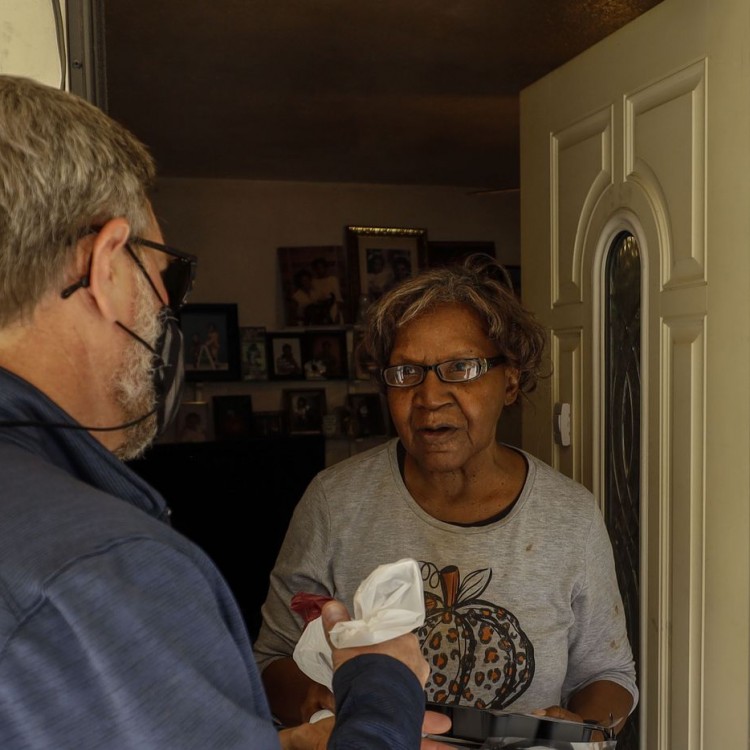Inside, Betty Aguilar, 83, opened the door slightly and stuck her arms out. Culak handed her two bags: one with a soft taco, bell pepper medley and charro beans. The other contained cold milk and a sugar cookie.
Culak drops by once a week to drop off food and say hello. He’s an executive for the Visiting Nurse Association of Texas, and runs a weekly meals on wheels route for the nonprofit for seven years.
He makes sure people like Aguilar are fed, a critical service for homebound and underprivileged seniors. About 15% of Dallas County seniors, according to the nonprofit, live below the poverty line.
During the pandemic, drivers like Culak have taken on new roles.
Earlier this year, the VNA helped Aguilar get her COVID-19 vaccine and delivered doses with help from the Texas Division of Emergency Management.
Then the organization helped her set up a booster appointment for next month. The group has helped other seniors stay healthy, get rides to the bank or other appointments, and provided heaters in winter and box fans in summertime.
Now, Dallas County has chosen to help the organization expand its services with federal money from the American Rescue Plan.
“What would we do without them?” Aguilar asked. “I’m blessed because right now I have help, but you never know about tomorrow.”
Financial boost
Since 1973, the VNA has delivered meals for homebound seniors across the county. Today, they give out nearly 4,500 warm meals a day, Monday through Friday. The nonprofit also prepares lunch at over two dozen senior centers from Far North Dallas to DeSoto.
But like so much during the COVID-19 pandemic, dining behaviors have changed dramatically since March 2020. The nonprofit reports that demand for meals at senior centers grew by 200% during the pandemic.
Now, more people are staying home, even with plans to reopen public senior centers next year. That means more home-delivered meals for those in need.
With help from the county’s $511 million pool of American Rescue Plan money, the VNA is changing tactics to adapt.
